Inside this post: Helping siblings get along is easy with this one simple tip. It will stop sibling fighting and improve the relationship between parents and kids too.
It started out the same way it always does—everything is going fine between the kids, and then, BAM, tears burst from every direction like a sprinkler on steroids. I’m drowning in their waterworks, and I’ve got no idea which spout to put a plug in first.
It’s like a sibling rivalry light switch.
Today it started with my strong willed child eating a sandwich at the kitchen table. Seems innocent enough, right? But then, his younger sister started walking towards him, which apparently is not innocent at all.
Fearful that she was going to steal his precious sandwich (which he probably was not going to eat anyway) he stretched his arm out as far as it could reach, as if to use a magical force field to stop her.
“SIS-TER!” he screamed.
His authoritative screams and magical force field did not stop her. So he tried again, but with more emphasis.
“SIS-TARRRRHHHHHH!!!!”
She continued walking closer and closer until she reached a stiff-arm stopping her.
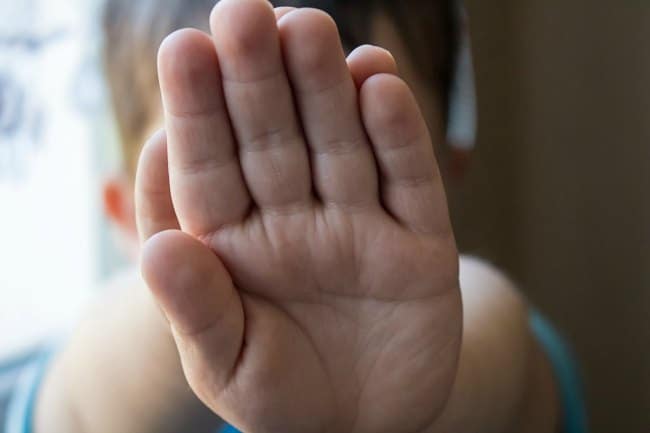
“Hey, gently, gently. Slowly, slowly,” I chimed in giving the look. “You can push your plate to the middle of the table and she won’t be able to reach it.”
I stepped out of the room to put a few items of laundry away.
That’s when it happened.
WHACK.
I bolted back to the kitchen to find my daughter bawling on the floor with my son standing over her.
“What happened?!”
{silence}
I scooped up my crying daughter to console her and whisked my son off to his room to counsel him on hitting and aggressive behavior because he clearly hit her.
Or so I thought.
Related: What to Do When Your Child Hits You
I was instigating a sibling rivalry.
There is always going to be some form of fighting in healthy family relationships.
It’s normal. It’s real. It’s honest.
As a child, I vividly remember my family joking about how no holiday was complete without some sort of family brawl.
Usually about burnt dinner rolls.
Or the ham being too dry.
The danger comes in when we unknowingly add to fuel to the sibling rivalry fire. Turns out, what I thought happened between my son and my daughter isn’t what happened.
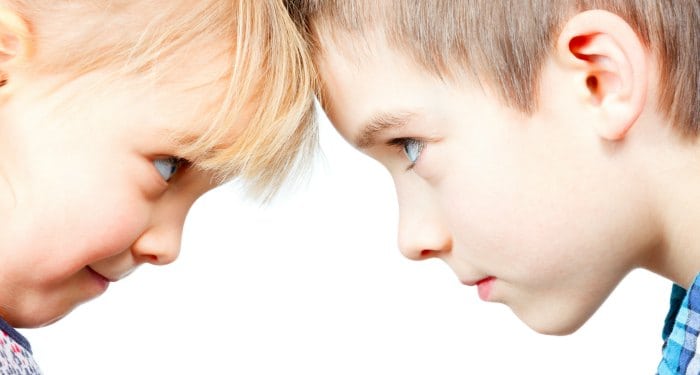
Here’s the true story.
My husband later informed me that when I went to put the laundry away, he walked in the front door and from the entry way saw the kids fighting.
My son was still attempting to block my daughter from taking his sandwich using his body. But she was determined to get his sandwich, so she started climbing over the arm of the chair and WHACK…
She slipped and fell.
She cried.
He jumped down.
I came running.
I rescued her.
And to top it all off, I blamed my son.
I immediately assumed that he hit her. And by blaming him for the situation, I started to prime their relationship for sibling rivalry.
Here’s why.
The more parents get involved with sibling fighting the more kids start to feel resentment and anger towards the sibling and the parent. You may find yourself–unknowingly–creating a bully versus victim scenario.
The more I swooped in to protect my daughter, the more I enabled her to be the victim. When I quickly judged my son’s actions, I played him out to be a bully.
And the more I unknowingly projected these views on my kids, the more I set them up to become a self-fulfilling prophecy for those roles.
This is exactly where a child may start to feel like he can’t do anything right. Or that he can’t trust his parent to recognize that he was trying to make the situation right.
How do you stop sibling fighting?
In a word…sportscasting. The easiest way to help siblings get along is to sportscast exactly what you see in the moment using observations free from judgement, questions, teaching or fixing.
This helps kids feel heard and understood and allows you to parent with a lot more information.

It might sound something like this…
Me {to my daughter}: Wow. You’re crying. It looks like you’re really upset.
Me {to my son}: You were sitting in the chair eating your sandwich and then something happened.
Right there, this opens the door for the kids to share what happened between them. If something big happens, they are always eager to tell you about it.
Hypothetically, if I’d approached with sportscasting, my son may have said something like…
“Yeah! She tried to take my sandwich and then she fell down.”
And I might respond with…
“That makes sense. You were pretty worried about her taking your sandwich. You didn’t like that she was so close. You tried to stop her. Next time, you can ask for help.”
Once everyone feels heard and understood, they are much more like to be open to problem-solving and finding a solution.
Related: 2 year-old not listening? Try this remarkable tip.
Here’s another example to help siblings get along.
Let’s say one child is playing with a doll. And another child is intrigued by the doll too, walks up and takes it away. It might sound something like…
Parent to daughter: “You were playing with that doll and he walked up and grabbed it from your hands. Looks like you didn’t like that.”
Parent to son: “You saw she was playing with that doll. It looked interesting to you so you grabbed it. It looks like she didn’t like that. Look at her face. She’s crying and frowning.”
I always try to give descriptions of facial expressions because this is something tangible all kids can observe and understand.

Younger kids see the world in black and white, and while describing feelings is a good thing, they are sometimes arbitrary and difficult to interpret. A great work around is to help kids recognize facial expressions.
Related: 10 Best Books on Toddler Discipline to Keep a Peaceful Home
Let’s do one more example on sibling fighting.
Say there are two older siblings and the younger sibling is jealous because his older brother always gets to do the “fun stuff” like sleep at a friend’s house. And the older sibling is sick of the “baby” always tagging along. It might sound something like this…
Parent to young brother: “Wow. You just feel like you never get to do anything fun. It’s like you’re just stuck at home with mom and dad all the time. You wish you could go with your brother and do things older kids do.”
Parent to older brother: “And you wish you could have more independence. You want to spend time with your friends without anyone else coming along. You wish you had more freedom to make choices by yourself.”
After each of the above examples, you can pause and allow the kids to give more information. This opens the door for solutions when everyone feels seen, heard and understood.

I love to follow up with my all-time favorite saying from Language of Listening®…
“There must be something you can do!”
The kids may come up with some great solutions. And if they don’t, you can jump right in with anything the child Can Do to meet their needs.
Related: How to Teach Kids Empathy
There’s a bonus.
On top of the fact that sportscasting works beautifully, it also saves your energy! It takes a lot less energy to simply describe the situation as you see it, rather than wonder what the right thing is to say. And it’s also much easier than trying to manage all the behaviors happening between siblings.
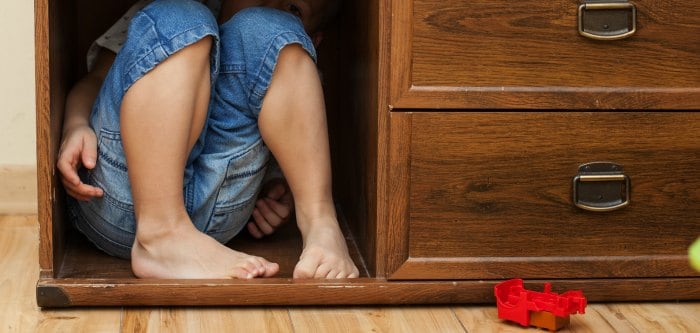
When we take a step back and allow each child to feel seen and heard, there is a magic that happens between them.
Kids are amazing little problem-solvers. They come up with creative solutions that most adults would never even think about.
One time my oldest ate his sandwich inside the cupboard. I never would’ve thought of that. But I let it go because it was a solution that worked for them.
He got to eat his sandwich in peace.
She didn’t have to spend 15 minutes trying to get past his magical force field.
And I didn’t have to do a thing.
Want more on parenting?
- 7 Foods That Will Improve Kid Behavior — According to Science
- How to Respond When Your Child Lies to You
- 40+ Printable Picture Routine Cards for Toddlers and Preschoolers
- What No One Tells You About Parenting Toddler Boys
I've created a free email series just for you! If you are struggling with teaching your child to listen, this series will help transform your parenting. Yes, really. I've seen my proven strategies work time and time again for parents. I know it can work for you too.
After taking my free email series, you will:
- Learn simple, yet highly effective listening strategies
- Experience a stronger connection with your child
- Enjoy more peaceful parenting days
- Gain more cooperation from your child


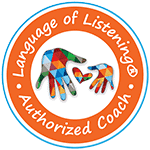
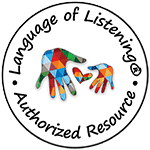
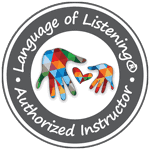
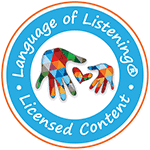








My youngest daughter was often coming to me, crying that her older sister and brothers were hurting and being mean to her. So of course I was giving the lecture on being nice and kind, over their protests of course. And then the day the kids were sitting on the couch and watching tv as I walked past the family room door. Surprise, all is quiet and calm, when youngest daughter reached out and pinched and poked. Of course her siblings poked and pinced back, and she came to tell me. Ah, but I had seen her game and told her to apologize to her siblings. Never happened again.
I’m a sister of a crazy brother that won’t quit yelling a the video games. I HAVE A STINKING HEAD ACHE. AAAAAAAAAAAHHH!!! What should I do? TELL ME. So what do ya say to that?
This is great! A small tip for you too – I have been hearing wonderful things about The Danish Way of Parenting. After a long day, it can be easy to get sucked into the negativity that goes along with sibling squabbles and rivalry… We have been trying to focus on the positive interactions between our boys and it really helps. They just light up when they get caught being kind or helpful to each other. You must try this Danish style of Parenting too!!